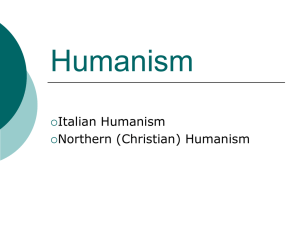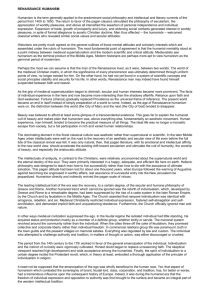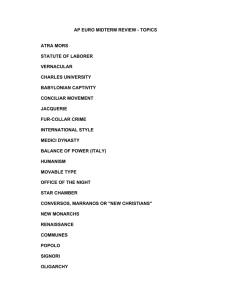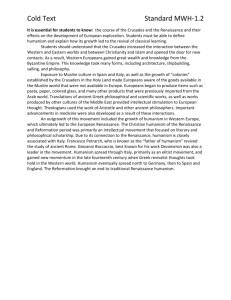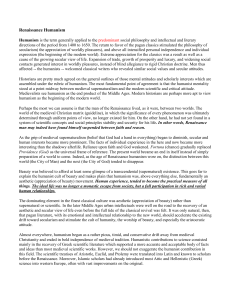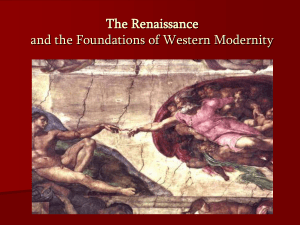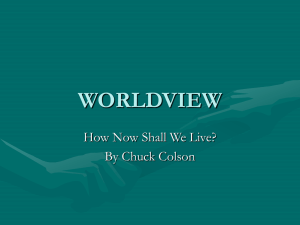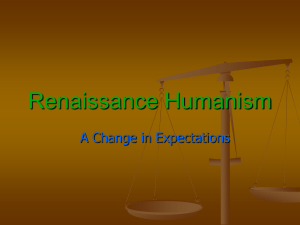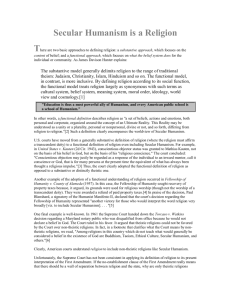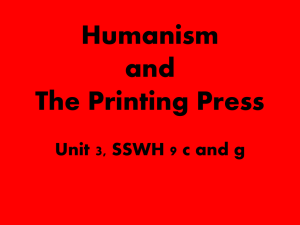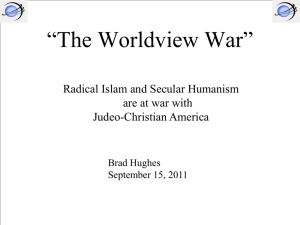Humanism VS Religion
advertisement
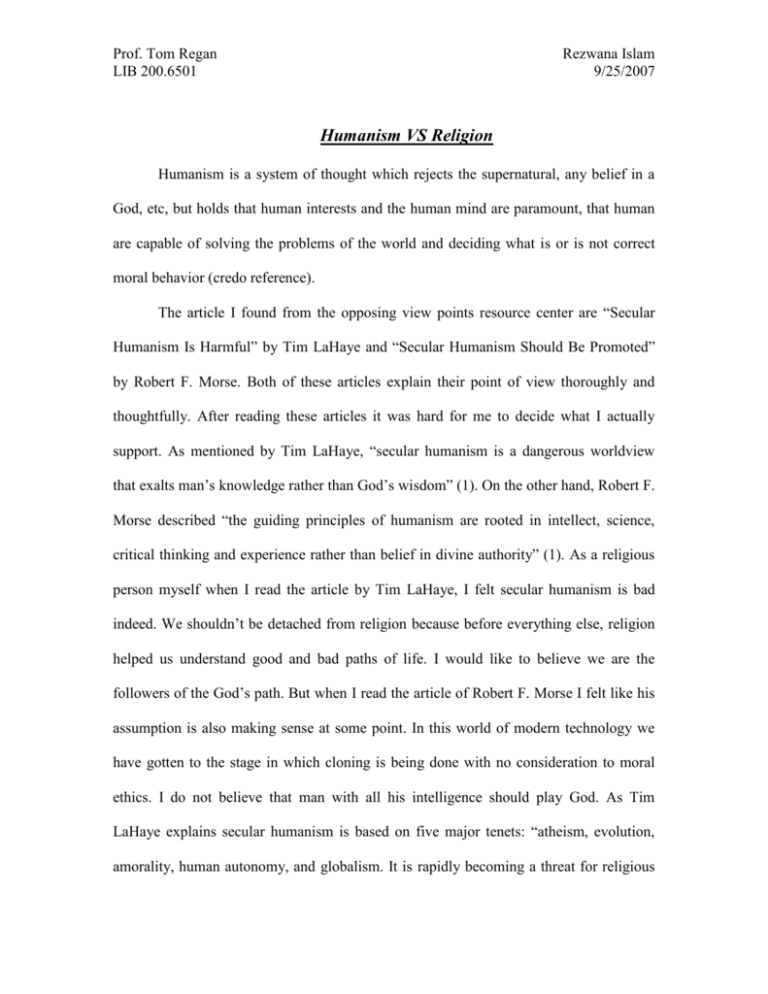
Prof. Tom Regan LIB 200.6501 Rezwana Islam 9/25/2007 Humanism VS Religion Humanism is a system of thought which rejects the supernatural, any belief in a God, etc, but holds that human interests and the human mind are paramount, that human are capable of solving the problems of the world and deciding what is or is not correct moral behavior (credo reference). The article I found from the opposing view points resource center are “Secular Humanism Is Harmful” by Tim LaHaye and “Secular Humanism Should Be Promoted” by Robert F. Morse. Both of these articles explain their point of view thoroughly and thoughtfully. After reading these articles it was hard for me to decide what I actually support. As mentioned by Tim LaHaye, “secular humanism is a dangerous worldview that exalts man’s knowledge rather than God’s wisdom” (1). On the other hand, Robert F. Morse described “the guiding principles of humanism are rooted in intellect, science, critical thinking and experience rather than belief in divine authority” (1). As a religious person myself when I read the article by Tim LaHaye, I felt secular humanism is bad indeed. We shouldn’t be detached from religion because before everything else, religion helped us understand good and bad paths of life. I would like to believe we are the followers of the God’s path. But when I read the article of Robert F. Morse I felt like his assumption is also making sense at some point. In this world of modern technology we have gotten to the stage in which cloning is being done with no consideration to moral ethics. I do not believe that man with all his intelligence should play God. As Tim LaHaye explains secular humanism is based on five major tenets: “atheism, evolution, amorality, human autonomy, and globalism. It is rapidly becoming a threat for religious Prof. Tom Regan LIB 200.6501 Rezwana Islam 9/25/2007 people since secularist thinking dominates the Western world. As argued by Robert F. Morse, “humanisms regard for empathy, reasoned discussion, and human rights has actually helped religion to evolve out of its tendency toward narrow-mindedness and barbarism” (1). It shows the authors humanist point of view. He also suggested to the humanist and religious believers to work together to make peoples’ life worthwhile. He also mocked at religion at some point, when he said “we do not see ourselves as children of God who can never grow up” (20). I do not agree with the author. In fact, religion helps us grow up by showing us the moral guidelines. What I feel is I am in no position to judge any of these writers. As a religious person and a student of Liberal Arts, all I can say is I want to get a considerably solid background of balance between humanism and religion. *************************************************************

